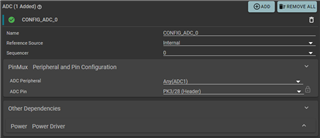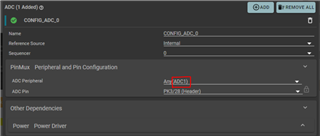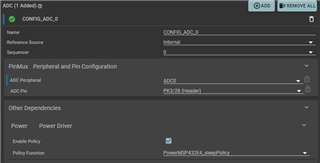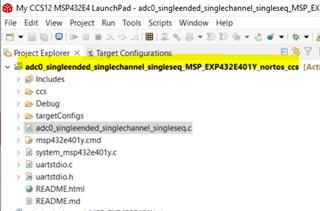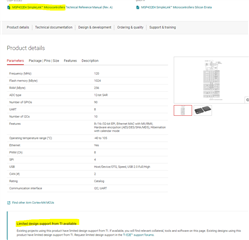Part Number: MSP432E401Y
Other Parts Discussed in Thread: SYSCONFIG
I have an MSP432E401Y FreeRTOS project that uses 4 different ADC channels. One of the ADCs (PK3) is monitoring the wiper of a potentiometer. The values read from that ADC seem to sporadically jump from 1.8V to 3.3V every few seconds regardless of the potentiometer's actual state. I've probed around the board with both an oscilloscope and a voltmeter. I have verified that pin 21 (PK3) is connected to the potentiometer with a very fine probe, and my instruments read the correct voltage. The other ADCs are working very well with a high level of accuracy. Does anybody know what might be causing this?


